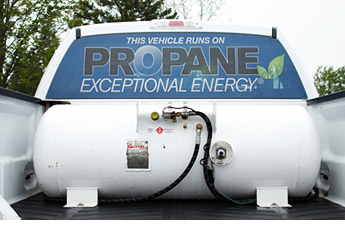|
The Green Matters e-newsletter is designed to give you a quick glimpse of important sustainability initiatives happening around the metro Atlanta region and beyond. Whether it's the latest research, new educational offerings, environmental stewardship efforts, or potential funding opportunities, this e-newsletter will help you stay abreast of what's happening in this important subject area.

Power in propane – Alternative fuels include an oft-overlooked barbecue favorite

“Alternative energy” usually brings to mind images of vast solar panel arrays and slowly spinning wind turbines—rarely is propane, the gas that heats up backyard barbeques, included in the list.
But maybe it should be.
The Jefferson County, Wis., Sheriff’s Department has been using propane autogas, the name given to propane used as automotive fuel, for nearly 30 years. Jefferson County Sheriff Paul Milbrath has no complaints.
“If you’re looking at long-term savings and long-term environmental returns, it doesn’t get better,” he said.
After switching to save money on gasoline storage fees in the 1970s, Milbrath estimates the department now saves around $200,000 a year by running the fleet on propane. The numbers, Milbrath feels, speak for themselves.
Read more >

|